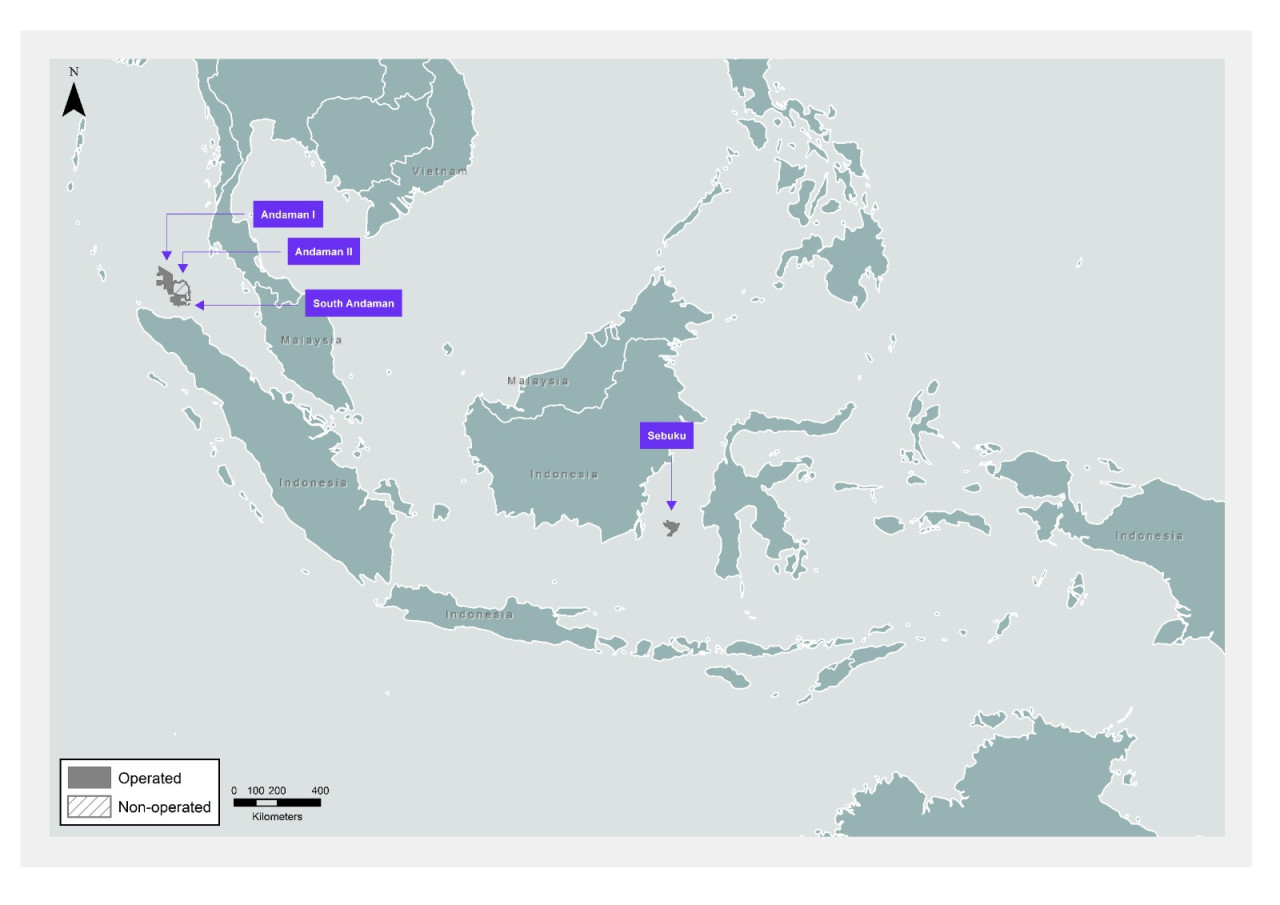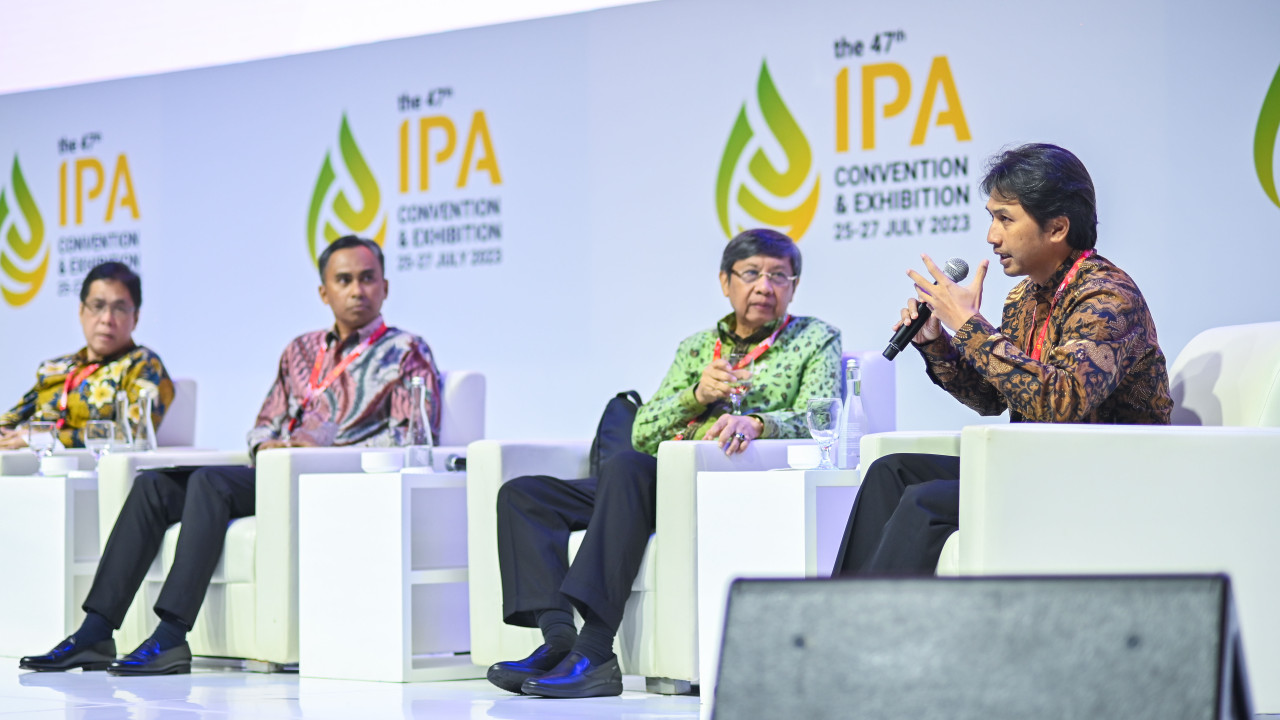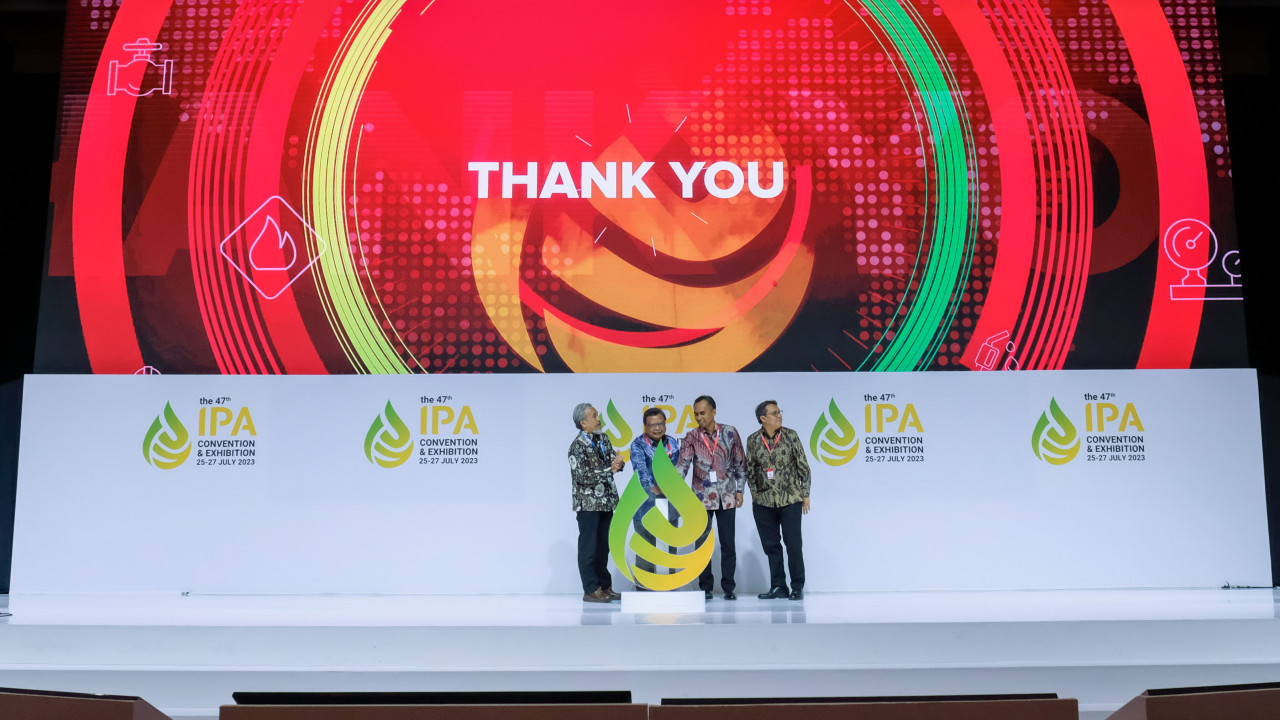Need Integrated Policies for Balanced Oil and Gas Production and Emission Reduction
2nd Pre-Event of IPA Convex 2021
|
|
The Indonesian government is aiming for an oil production target of one million barrels per day, and gas of 12 standard cubic feet per day by 2030. In the midst of global efforts to address climate problems, increasing national oil and gas production must be aligned with efforts to reduce carbon dioxide (CO2) emissions. In order to create a balance between increasing production and reducing carbon emissions, an integrated policy is needed. That way, it can provide clarity for global oil and gas investors when running their business in the country. “We must have an integrated policy that makes it easier for investment. With in-place regulations, everyone will feel safe to invest in Indonesia, including the domestic industry. That’s what we need,” said Deputy Head of SKK Migas Fatar Yani Abdurrahman at 2nd Pre-Event of IPA Convex 2021 with the title “Carbon Policies in Indonesia, Striking the Balance Between Carbon Emission Target and the 1 MMBOPD / 12 BSCFS Target”, Wednesday (28/7). Also present at the event, Expert Staff to the Minister of Energy and Mineral Resources for Environment and Energy Mineral Resources for Environment and Spatial Planning, Saleh Abdurrahman; Director General of Climate Change Control, Laksmi Dhewanthi; Special Staff to the Minister of Finance for Fiscal Policy and MacroEconomics, Masyita Crystallin; and Director of Repsol Indonesia, Greg Holman. As moderator of this event, Wood Mackenzie’s Director of Upstream Oil and Gas Research Asia Pacific, Andrew Harwood. Fatar further said that global oil and gas companies certainly have targets for reducing carbon emissions. Therefore, Indonesia needs to accommodate these global standards through a policy that is in accordance with the Paris Agreement or commonly known as the Paris Agreement. Considering that investors are still looking at the National Oil and Gas potential which is predicted to have a big role in the National Energy Mix in the future. In addition, oil and gas is still considered as a supplier of energy to encourage economic growth. “So, this policy must be responded to. The government and business have to sit together otherwise the company will leave,” he said. Greg Holman said the same thing. According to him, to invest and run operations that are in line with efforts to reduce carbon emissions requires clear legal certainty. For example, related to carbon capture and storage (CCS) technology which requires technical clarity in its implementation. In addition, clarity regarding the carbon pricing scheme. “So technical and legal capacity must be prioritized and given the green light to do so,” he said. Greg said oil and gas companies only want to ensure that the project can run and be a part of meeting national energy needs. According to him, the company’s decision to invest heavily depends on a number of things such as prospects, infrastructure development, access to energy markets, fiscal regime, and how existing regulations can help business activities. “This is Indonesia’s position in terms of competitiveness. Now we will see how (the company) will invest, whether on the upstream side or elsewhere,” he said. According to Saleh Abdurrahman, the government is open to discuss what incentives oil and gas companies need to reduce carbon emissions. Both in terms of using CCS technology and carbon capture storage and utilization (CCUS). However, he noted that the government has made incentives for enhanced oil recovery (EOR) projects that use CO2 or steam as injection material. Saleh said that the application of CCS or CCUS technology is in line with efforts to increase production but also reduce greenhouse gas emissions. According to him, currently there are several CCS projects in Indonesia, and they are expected to be able to carry out injections in 2026. Efforts to maintain the production rate are very necessary because the role of fossil energy is still needed in realizing Indonesia to become a developed country in 2045. Oil and gas energy supply is needed to encourage economic growth which in turn can increase people’s per capita income. On the other hand, by maintaining production, it can reduce dependence on oil and gas imports. Saleh said, natural gas will play a big role in the national energy mix because the use of oil will be minimized to reduce imports. At the same time, encourage the application of low emission technologies to reduce GHG emissions. “This is one of the urgent agendas, and we will work on it quicky in the near future,” he said. As for Laksmi Dhewanthi, the government is currently preparing a Presidential Regulation related to carbon prices, also known as the carbon economy value (NEK). This regulation will promote the implementation of carbon prices in order to support the nationally determined contribution (NDC) target. As it is known, Indonesia’s NDC target in 2030 is to reduce emissions by 29 percent (834 million tons of CO2e) with their own efforts. This number can increase to 41 percent (1,081 million tons of CO2e) with support of international cooperation. “In the Presidential Regulation, it is still based on the mandate and function of each ministry. So, for the carbon tax, the sector leader is at the Ministry of Finance. It must be able to coordinate with the Ministry of Environment and Forestry and other related sectors. So, each Ministry will have its own functions and regulations related to the implementation of carbon prices in Indonesia,” she said. Meanwhile, Masyita Crystallin said that related to carbon prices, her party has collaborated with the Ministry of Environment and Forestry to prepare the necessary regulations. She explained that there are two carbon price instruments, namely first, trading instruments with two types, namely emission trading systems (ETS) and emission offsets (EO). While the second non-trade instruments with two types, namely carbon tax and result based payment (RBP). “ETS can buy emission permits. If the EO of an entity that reduces carbon can sell it to an entity that needs carbon credits,” she said. In closing, Andrew Harwood concluded that it is important for investors and the government to achieve the right framework considering that the 2030 production target is a big challenge, as well as the target for reducing carbon emissions. “Now this is how to balance the target,” he said closing the event. (*) |



